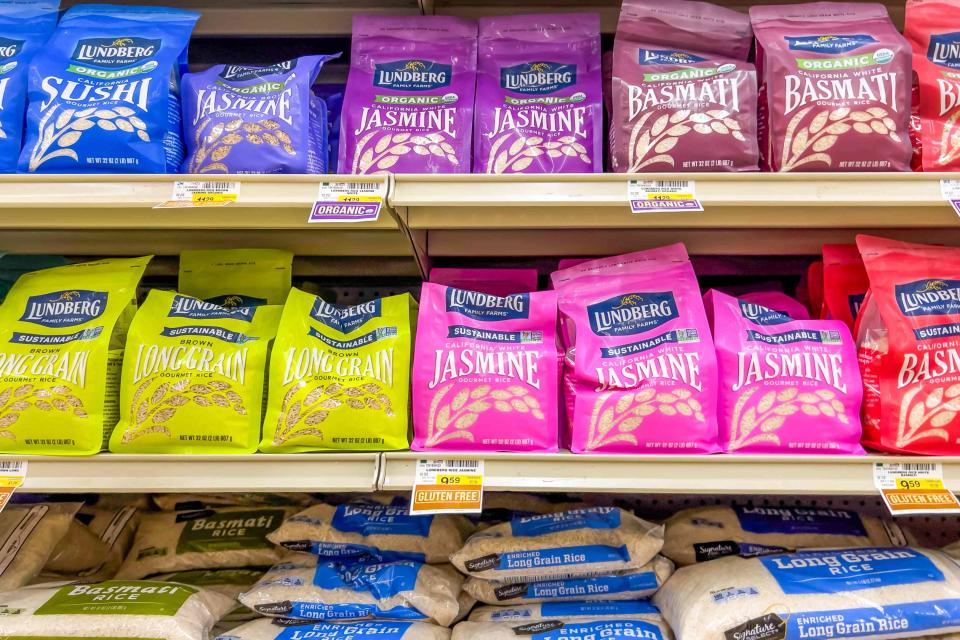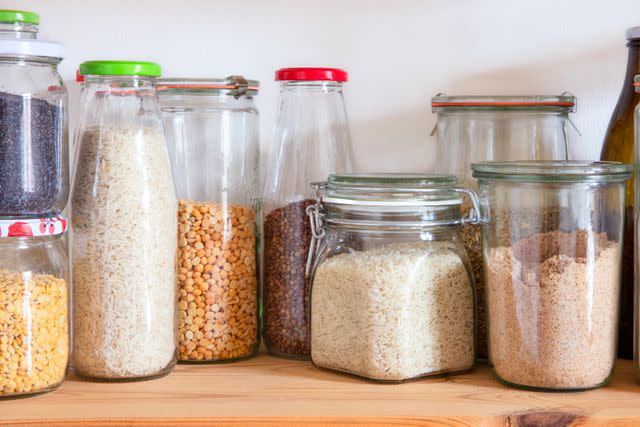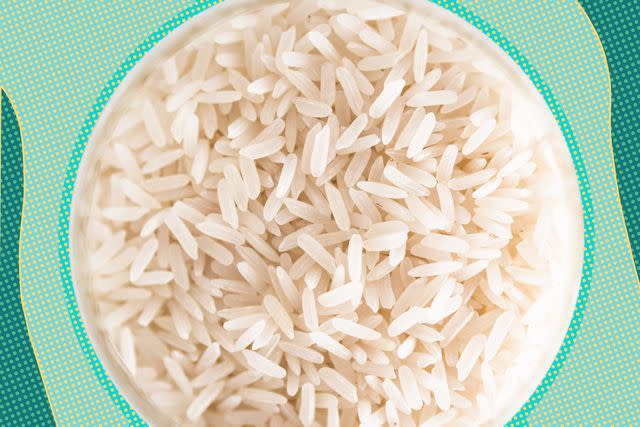The Only Way You Should Store Uncooked Rice, According to Lundberg Family Farms
Yes, there's a right way and I asked the experts.

Simply Recipes / Adobe Stock
After I whip up a little stir-fry or cook some rice as a side dish, I’m never quite sure how to store the rest of the uncooked rice. I typically slide the open package into a zip-top plastic bag and keep it on the pantry shelf.
That’s fine, but there are better solutions, says Brita Lundberg, a fourth-generation farmer and chief storyteller at California-based Lundberg Family Farms, which grows organic rice.
Lundberg recommends storing raw, uncooked rice in a cool, dark place that is pest-free. Ideally, she recommends keeping it below 55°F.
“Like any natural grain, rice can deteriorate when exposed to light, heat, or pests,” she says. “The refrigerator and freezer are great options. Plus, the freezer can extend shelf life by a few months!” If you do, how you store it matters.

Simply Recipes / Getty Images
The Best Container for Storing Raw Rice
Once you’ve opened the bag or box, store uncooked rice in an airtight container to keep out moisture and anything else that could threaten the safety and quality of the rice. Lundberg rice comes in pouches with re-closable seals for easy storage.
It’s OK to use a zip-top bag in the short term, says Lundberg. “I recommend placing the original packaging in the zip-top bag to be sure your rice stays as fresh as possible.”
Make sure to remove as much of the air from the bag as possible before you seal it closed. If you need to store rice for a longer period, look for a more solid—glass or plastic—container.
“You should store rice in a separate container to maintain its quality. Make sure the lid is secure to reduce increases in water activity, which can lead to the growth of unwanted microorganisms, contamination by pests, and odor adsorption,” suggests Zachary Cartwright, Ph.D., lead food scientist at AQUALAB by Addium and a member of the Institute of Food Technologists food safety and quality management division.
“If possible, use a transparent container so you can easily see if the rice has any signs of spoilage or pests.”
Store Raw Rice in a Cool, Dark, and Dry Place
Once you place the rice in an airtight container, it’s best to store it in a place that is cool, dark, and dry, says Cartwright.
“Avoid any moisture or high humidity areas, and even consider using a moisture-absorbing packet,” he says. “Also, avoid exposure to direct sunlight or any heat, as these will accelerate the aging process of the rice and can affect taste and texture.”

Simply Recipes / Photo Illustrations by Sarah Crowder / Adobe Stock
What May Happen If Uncooked Rice Isn't Stored Properly
If rice isn't stored properly, it can affect its safety and have an impact on how it tastes. Start by paying attention to the date on the package. If you store it correctly, raw rice can last at least one year, says Lundberg.
"Like many natural grains, rice has a 'best before' date instead of an expiration date. This is the date we have identified through shelf-life testing to ensure our rice cooks up fresh, flavorful, and fluffy," she says. "While it is safe to cook and consume rice past the 'best before' date, it may not cook, smell, or taste quite right."
If rice isn’t stored properly, there are several potential concerns, says Cartwright:
Bacterial growth: Uncooked rice isn’t typically a high-risk food for bacteria because it has little water, but there is at least one bacterium (Bacillus cereus) that can survive even when cooked.
Pests: Bugs or rodents can get into rice that isn’t stored in a tightly sealed container and compromise its quality.
Mold: Mold can grow in rice if it's stored in a damp or humid area.
Overall quality: Rice can become rancid—meaning it has an unpleasant taste or smell—when exposed to a lot of air or light. It can also lose nutritional value and absorb odors.
And here’s an extra pro tip from Lundberg: “Store your rice separately from spices and garlic to keep it from absorbing their aromas.”
There’s More Than One Way To Cook Rice
Read the original article on Simply Recipes.

